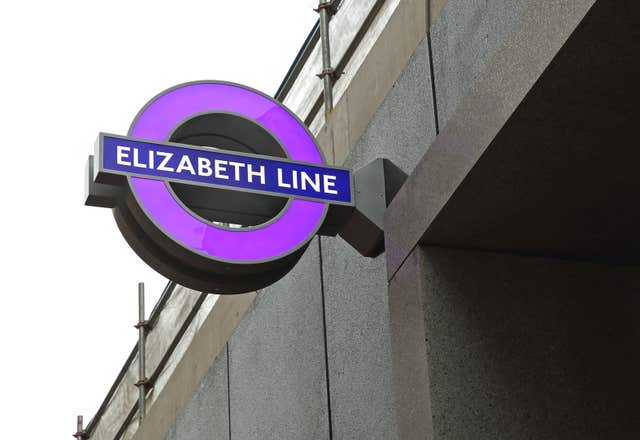
The announcement that Crossrail will not be operational until autumn next year is the latest hitch to the London engineering project.
More time is needed to complete “final infrastructure and extensive testing” to ensure a “safe and reliable railway” is delivered, Crossrail Limited said.
The service, which will be known as the Elizabeth line when it launches, has already proven to be a controversial project due to concerns over delays, funding and safety.
– Delays
There have been a number of proposals for a Crossrail-style railway since the 1940s, but it was not until July 2008 that the current scheme was given parliamentary approval.
Services were originally due to begin in 2017, but a decision was made in October 2010 to push this back by 12 months.
The start date of December 2018 has now been delayed until autumn 2019 as more time is needed to complete building work and safety tests.
– Budget
Crossrail’s budget was set at £15.9 billion in 2007, but this was cut to £14.8 billion in the Conservative and Liberal Democrat coalition government’s Comprehensive Spending Review in 2010.
In July it was announced that £600 million of additional funding was required as Crossrail Limited and Network Rail both needed more money to complete the project.

– Safety
Contractors working on the project were fined more than £1 million in July last year over the death of a worker and two other incidents.
A joint venture of three companies, Bam, Ferrovial and Kier (BFK), pleaded guilty to three offences at Southwark Crown Court following an investigation by the Health and Safety Executive (HSE).
Construction worker Rene Tkacik, 44, died after being crushed by falling wet concrete in March 2014.
Two other men were injured in separate incidents within six days of one another in January 2015.
The HSE said the incidents could have been prevented if “simple measures” had been taken.
– Investment
Investment in Crossrail has fuelled frustrations among people who believe regions such as the North of England are being discriminated against in terms of transport funding.
Think tank IPPR North claimed earlier this year that planned transport investment in London is two-and-a-half times higher per person than in the North.
The Department for Transport disputes the figures.
Transport Secretary Chris Grayling sparked anger in July 2017 last year by supporting a new £30 billion Crossrail 2 north-south scheme in London days after a series of rail electrification projects in Wales, the Midlands and the North were axed or downgraded.


Comments: Our rules
We want our comments to be a lively and valuable part of our community - a place where readers can debate and engage with the most important local issues. The ability to comment on our stories is a privilege, not a right, however, and that privilege may be withdrawn if it is abused or misused.
Please report any comments that break our rules.
Read the rules here